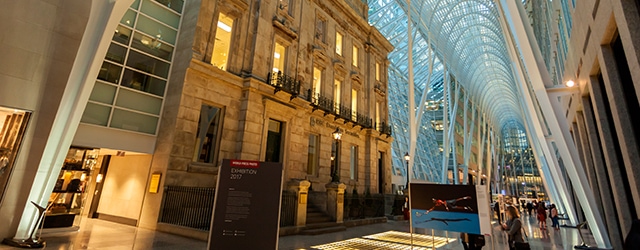The risk that tenants will fall behind on rent payments or go out of business under the stresses of the global coronavirus pandemic is enormous.

Like other real estate powerhouses, Canada’s Brookfield Asset Management is bracing for the prospect of a severe downturn in commercial real estate as the global pandemic leaves businesses, offices and hotels around the world mostly empty.
Brookfield’s real estate empire totals 450 million square feet of commercial real estate—150 million in retail space and another 300 million in offices, hotels and apartments spread across China, the US, EU and Latin America.
The risk that tenants will fall behind on rent payments or go out of business under the stresses of the global coronavirus pandemic is enormous, given that even formerly successful US retail chains such as J.C. Penney, Neiman Marcus, J Crew and Pier 1 Imports have filed for bankruptcy protection.
The stakes are high for Brookfield, which was in the process of completing and filling its mammoth Manhattan West project, an eight-acre, six-building complex in central Manhattan.
Taking a long-term approach, Brookfield invests and operates alternative investments encompassing infrastructure, real estate and renewable power, having itself originated from Sao Paulo Tramway, Light and Power Company, a Brazilian industrial incorporated in 1899.
In May, Brookfield said it would invest $5 billion to acquire minority stakes in retailers struggling to pay their rent, not necessarily Brookfield tenants. “This initiative is being designed to assist medium-size enterprises in getting back on their feet. We believe this is a critical component to getting the economy moving again,” said Ron Bloom, managing partner and vice chairman of Brookfield’s Private Equity Group, who will lead the plan.
Unlike other private equity investors that cannot sacrifice short-term cash flow for long-term returns, Brookfield may explore other avenues for expansion and future growth during this recession [as well]. “Our focus has always been on structuring our affairs to ensure we can survive in all environments, and we are confident we are in this position today,” CEO Bruce Flatt told shareholders in a March update.



